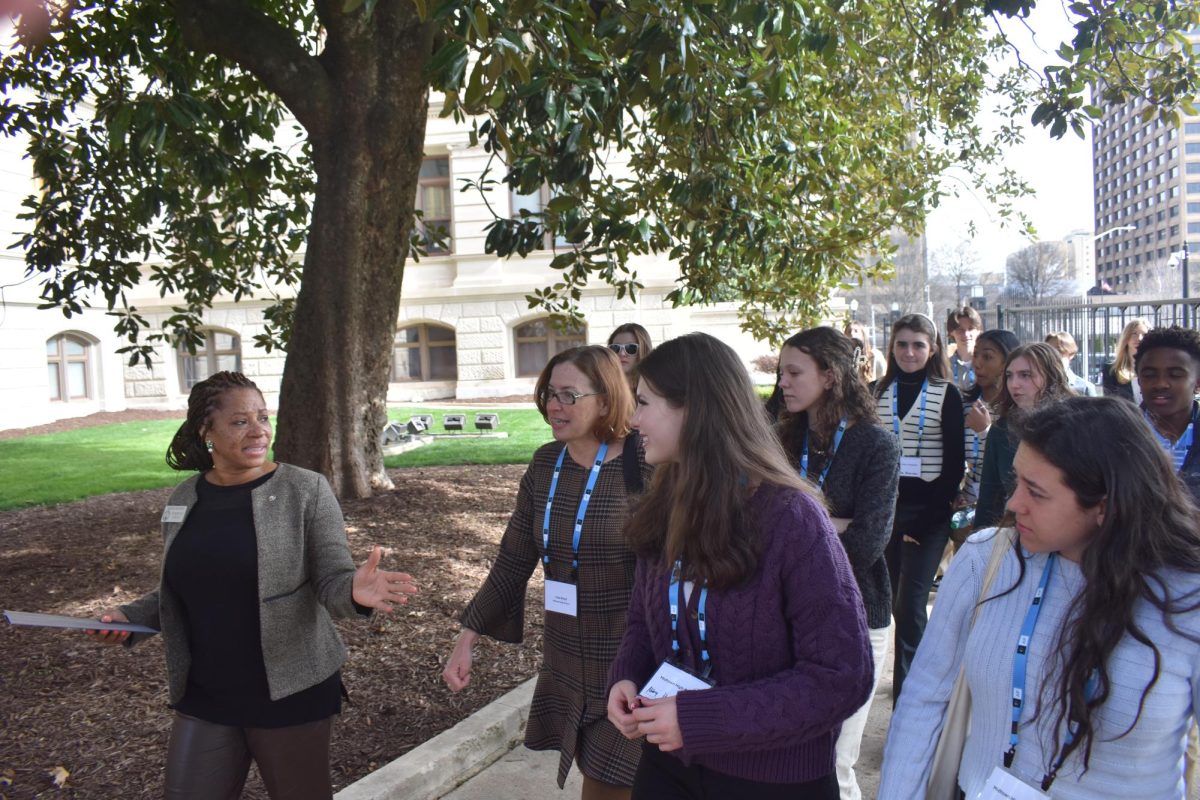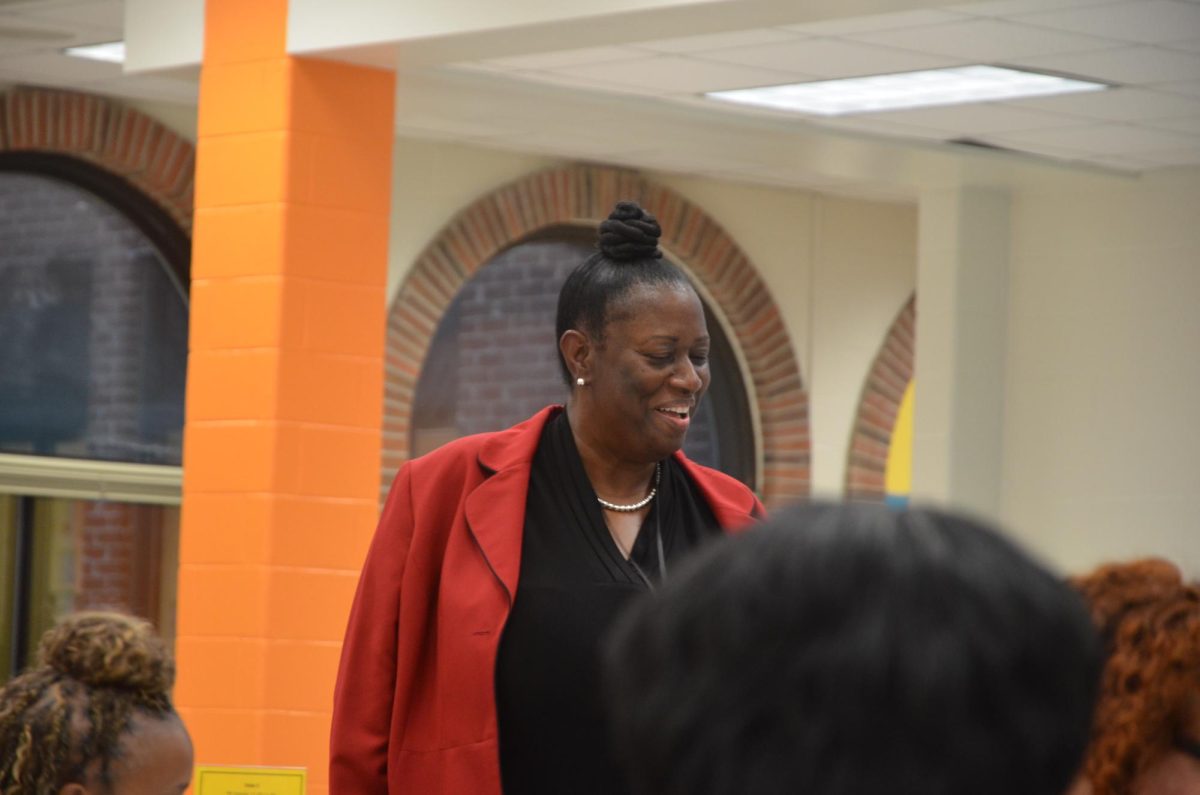By Orli Hendler and Eli Mansbach
Every time you turn the key in the ignition or flip a light switch on in your room, you contribute a small amount of greenhouse gasses to the atmosphere. Even though that tiny bit of pollution is insignificant on its own, the combined effects of billions of people performing those actions every day adds up to a lot.
According to the University Corporation for Atmospheric Research, the average global temperature has increased by about 1.53?F over the past 130 years, and despite initiatives to warn the world population and decrease our carbon footprint, global temperatures have continued to rise. According to the 2013 Intergovernmental Panel on Climate Change report, the past 30 years have been the warmest since 614 A.D.
To make matters worse for the United States, our country contributed the highest percent of global carbon dioxide emissions in 2007, 21.4 percent, though we are only the third most populous nation in the world. And although there have been international attempts to curb carbon dioxide emissions, like the Kyoto Protocol in 2002, which set goals to lower the carbon dioxide emissions, the United States did not sign it. Rising global temperatures have already had an effect on the world and can cause even more devastating consequences, according to David Hougton, a professor in the department of atmospheric and oceanic sciences at the University of Wisconsin-Madison. In response, individuals and businesses in Atlanta have been trying to use alternative, cleaner energy sources to decrease their global footprint and decelerate global warming.
LOOKING TO THE SKY
In the 1990s, Swedish home retail giant Ikea launched its green initiative in an effort to switch to renewable energy sources and reduce its use of resources, such as water and cotton. One of Ikea’s locations, which is a few miles away from Grady in Atlantic Station, placed solar panels on its roof in July 2012.
“We are a company that is very conscious about our imprint and impact on the environment on the global level,” Ikea Atlanta spokeswoman Deidra Cunningham said in an interview with The Southerner. “We have a very ambitious goal. We want to be able to produce 100 percent of the energy we use with renewable energy by 2020.”
With that goal in mind, Ikea is turning not only to solar power but also to other programs to decrease its environmental footprint. According to Cunningham, Ikea is also looking into geothermal energy in Colorado and has set up four electric vehicle chargers in front of its store in Atlanta. In addition, Ikea has an “aggressive diversion program,” which tries to keep as much waste as possible out of landfills via recycling and reusing. Cunningham said hundreds of tons of waste each month have been kept out of landfills by this program.
Ikea has invested $150 million on solar energy in the United States alone since 2010, and currently, 39 of its 44 U.S. locations have solar panels helping to produce clean energy. Cunningham said that since installing solar panels on the roof of the Atlanta location, the company has seen a decrease of electricity it needed to buy. The excess electricity produced by the solar panels that stores do not use can be sold or given back to the grid.
Though the Atlanta location has only been running on solar power for 20 months, Cunningham said that they predict the investment will pay off.
“We’ve got to be smart in how we choose to make cost savings when it comes to the energy that we use,” Cunningham said. “We have learned that over time we will be able to see a return on our investment by 25 percent.”
Ikea, however, is not the only local business changing the way it powers itself. Georgia Power has expanded into multiple forms of renewable energy, like solar and hydroelectric power.
“As interest has grown in renewable energy and as the cost of renewable energy has come down, we have kept up with developments and decided it was a good time to expand [the company],” Georgia Power spokesman John Kraft told The Southerner.
Though Georgia Power does not actually own any solar installations, Kraft said the company buys extra solar energy that individuals or buildings produce through their Solar Buyback Program, which currently gives solar energy producers 17 cents per kilowatt hour. Georgia Power then takes the energy it buys and offers it to homes and businesses throughout the state. Kraft said the number of people subscribing to the program is increasing daily, and the goal is to produce 800 megawatts on the system by 2016, which is the equivalent of providing solar energy for nearly 75,000 average American homes each year.
Kraft is concerned, however, that people equate solar energy with free energy.
“People think the sunshine is free so they think solar power is free, and that is probably one of the biggest misconceptions in this whole debate,” Kraft said. “Solar power has a lot of benefits, but it’s not free.”
Kraft also stressed the importance of not relying completely on solar power.
“Nature chooses when solar energy is produced,” Kraft said. “A solar power unit does not replace a traditional power generation unit. If a cloud passes by or a storm comes up … that solar system is not producing anymore.”
SMALL CHANGES, BIG DIFFERENCE?
In addition to the changes that businesses are implementing, individuals can also make small contributions that will improve the environment. Grady teachers, administrators and students have altered small aspects of their days in an effort to slow global climate change. World history and current issues teacher Louis Sartor has made a conscious effort to cut driving from his daily routine.
“The big thing I do is I ride MARTA everyday so I don’t drive my car, and whenever possible, I ride my bike,” Sartor said, who lives in Brookhaven.
Sartor said he wants to reduce the amount of carbon in the atmosphere. Besides car exhaust, Sartor said airplanes are a huge contributor to air pollution since they emit carbon dioxide directly into the air as they fly. The best way to travel in an environmentally friendly way is by train.
Biomedical Science and Engineering Academy leader Raymond Dawson also cuts back on carbon emissions through conscious transportation decisions.
“My biggest contribution right now is through my vehicle,” Dawson said. “I have an electric car, which has zero emissions. Fortunately, I have not bought gas in about nine months.”
Dawson was inspired to buy an electric car by former Vice President Al Gore’s advocacy for a cleaner environment. In 2006, Gore released a book and movie both titled An Inconvenient Truth that addressed escalating global temperatures and the negative effects of the trend. Dawson said he started to look for trends Gore presented, such as cooler summers and warmer winters. In addition, Dawson said switching to the new vehicle almost a year and a half ago just seemed like the next step.
“When hybrids first came out … I bought a hybrid back then, so it was just kind of a natural progression that once electric cars had made their debut, that that was something that I wanted,” Dawson said.
Like Dawson, freshman Phoebe Mason and her family have altered a few aspects of their lives in an effort to lessen their impact on the environment.
“We recycle, and we turn the lights off when we leave the room, and we don’t leave the water running when we brush our teeth,” Mason said. “The environment needs help because everyone is using a bunch of energy all the time.”
Despite the efforts of individuals, Sartor doesn’t believe he’s having much of an impact. Although he said the small contributions could collectively add up, he has little faith that others will attempt to change their ways.
“I would like to think that we as a species will come to our senses and realize that the path we’re on is headed for disaster, but frankly, I think that the way human nature is is…we have to hit really bad stuff in a severe way before people will change their daily habits, and we haven’t reached that point,” Sartor said.
Sartor suggested changes for others to try to reduce greenhouse gas emissions and curb global climate change. He said others could drive less, use public transportation more and turn down household thermostats. Dawson said people should try an electric car because they can get the economic benefits of not paying for gas as well as the satisfaction of knowing they are helping the environment. He also suggested simple actions such as turning off lights and unplugging electrical appliances when not in use. Dawson said these changes are not only good for the environment but economically beneficial as they reduce electrical costs.
GRADY GOING GREEN
One way that Grady can decrease its environmental footprint is to do what Ikea did, switch to solar energy by placing solar panels on the school’s roof. In order to get an estimate of the costs and electricity output that the school might expect from installing solar panels, The Southerner reached out to Solar Energy USA. According to information obtained from an open records request sent by The Southerner, Grady used 3.5 million kilowatt hours during the 2012-2013 school year, which cost the school $321,460.
Using Grady’s monthly electrical use during that school year, Solar Energy USA consultant William Zagorski was able to create a cost and electrical output projection for the next 25 years, which is how long he said the panels would last. Despite the $7 million that would be required to buy and install 7,500 solar panels, Zagorski estimated that in the 10th year, Grady would save enough money to break even on its investment and after 25 years, Grady would make just over $17.75 million. That means if Grady decided to buy more solar panels at the end of the 25-year period, the school would still have more than $10 million. Zagorski also projected that we would save 53,789 tons of carbon dioxide, the equivalent of planting more than 1.2 million trees.
While this overhaul may not come soon, the Grady community has other smaller-scale options for improvement. Dawson cited the pressure-controlled faucets in bathrooms and relative consistency of lights being shut off at night as examples of Grady’s current attempts to become more environmentally conscious. He said the school could improve by getting more hand dryers to reduce paper towel use.
Although Dawson sees many ways for Grady to change how it uses its resources, Sartor believes that getting people to take action is a whole other thing.
“I think people are going to have to one day just wake up and realize that we have to change our lifestyles and stuff and so far it hasn’t happened,” Sartor said. “Maybe [the next] generation can do it.”
















